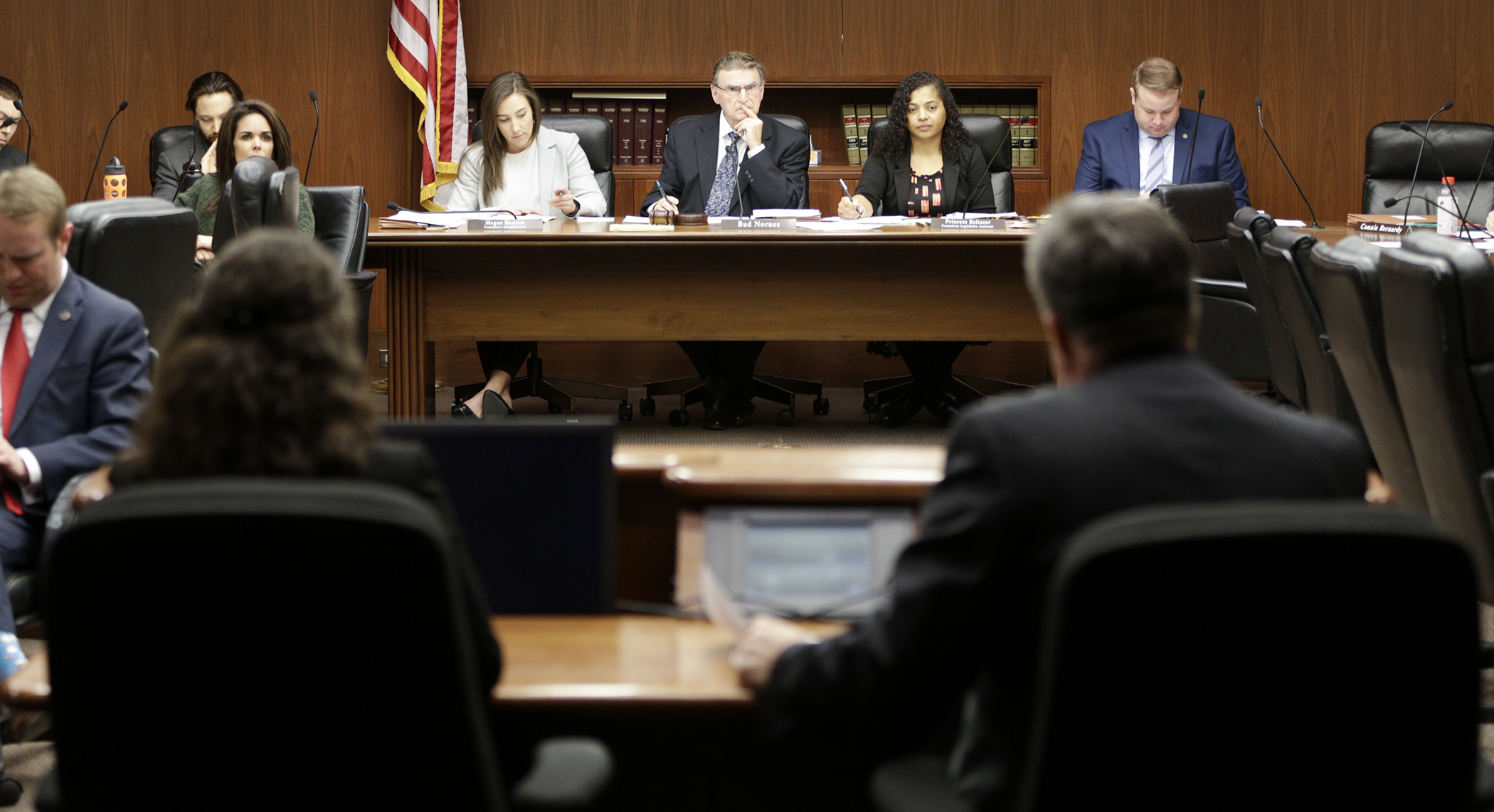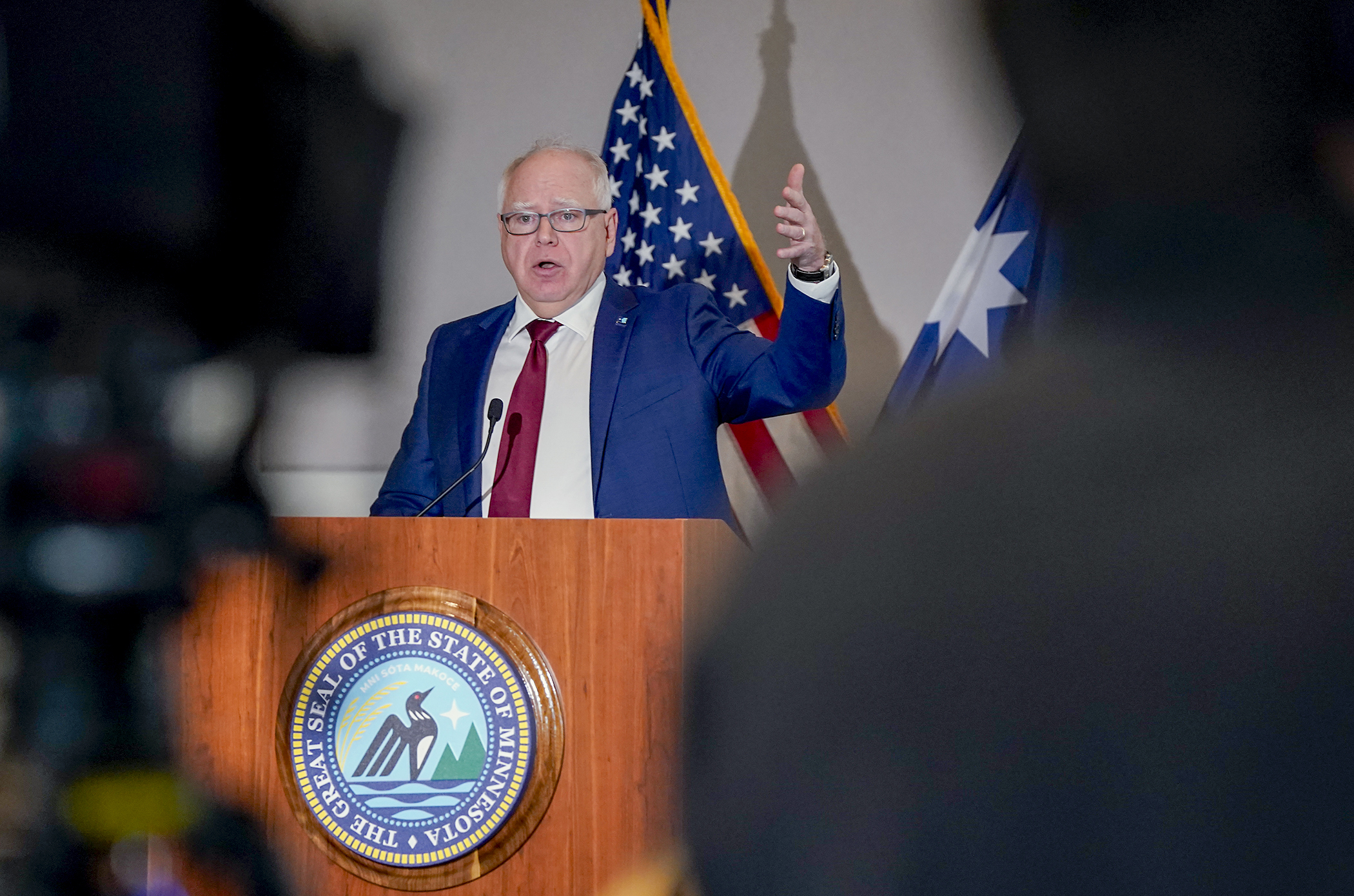Committee OKs omnibus higher ed bill focused on enhancing cybersecurity programming

Following yesterday’s overview, the House Higher Education and Career Readiness Policy and Finance Committee took testimony and amendments Wednesday before approving its omnibus bill on a split-voice vote.
Sponsored by Rep. Bud Nornes (R-Fergus Falls), HF3638, as amended, was sent to the House Ways and Means Committee, while its companion, SF3671, sponsored by Senate President Michelle Fischbach (R-Paynesville), awaits action by the Senate Higher Education Finance and Policy Committee.
The omnibus higher education finance bill’s primary investment would be a one-time $5 million appropriation to enhance the cybersecurity program at Metropolitan State University.
The overall supplemental funding target — and the way in which it is being directed — drew concern from several representatives of both the Minnesota State system and the University of Minnesota.
Laura King, chief financial officer for Minnesota State said, “If the $5 million that is available to you in the bill were provided as campus support, it would help every campus in the system across the state.” She added, “We have IT programs at every single one of our campuses … that campus support request would help us support all those programs.”
Rep. Gene Pelowski (DFL-Winona) unsuccessfully proposed an amendment that would instead split the $5 million appropriation between the University of Minnesota and Minnesota State to provide tuition relief to students.
“We do know that Minnesota is in the top 10 in the amount of debt that students carry and in the number of students that carry that debt. We know that student debt across the nation exceeds credit card debt,” he said. “This amendment, while I don’t think that it goes far enough, at least would put the $5 million where I think that it should be put and that is taking off the burden of debt.”
The provision to provide funding for the cybersecurity program comes from HF3639, sponsored by Rep. Tony Albright (R-Prior Lake). While he agreed with Pelowski that student debt poses a significant burden to students, Albright said the issue of cybersecurity and the need to prepare students for a career in that particular industry is more pressing.
Rep. Barb Haley (R-Red Wing) opposed the amendment on similar grounds and noted that the omnibus bill includes a provision that will redirect unused Minnesota State Occupational Grant Pilot Program funds to a student debt counseling program.
“That doesn’t directly address tuition costs but I think it recognizes the concern we all share around that and how we want to help folks make sure they get back on track and can pay their student debt,” she said. “What I like about Rep. Albright’s proposal is that that program will be self-sustaining. We’re putting in what I consider seed capital and after that, it will be self-sustaining and I think we will reap the benefits as a state for the long term.”
Pelowski’s amendment failed on a 9-5 roll-call vote along party lines.
“This entire argument revolves around the fact that if we had a target that was worthy of this committee we could probably easily do both,” Pelowski said. “Unfortunately we only have $5 million, so I think the choice has to be made.”
Related Articles
Search Session Daily
Advanced Search OptionsPriority Dailies
Full House convenes for first time in 2025, elects Demuth speaker
By Tim Walker DFL, Republicans convene with a quorum for the first time in 2025 session after agreeing to a power-sharing deal.
DFL, Republicans convene with a quorum for the first time in 2025 session after agreeing to a power-sharing deal.
Walz proposes slimmed-down 2026-27 state budget, sales tax changes
By Tim Walker This is an odd-numbered year, and so the Legislature is constitutionally required to craft a budget to fund the state government for the next two fiscal years.
Gov. Tim Walz...
This is an odd-numbered year, and so the Legislature is constitutionally required to craft a budget to fund the state government for the next two fiscal years.
Gov. Tim Walz...